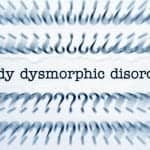
The questionnaire, developed by Katherine Phillips, MD, director of the BDD Program at Rhode Island Hospital, takes just 1 to 5 minutes to administer and is designed as a preliminary screening tool to determine which patients should undergo further evaluation for suspected BDD.
The new study included 234 patients aged 18 or older presenting to a facial plastic surgery clinic from March 3 to June 30, 2014. Of these, 13.1% of patients undergoing cosmetic surgery and 1.8% of those undergoing reconstructive surgery had BDD as confirmed by the BDD SCID.
Download the Adult or Adolescent BDDQ screens.
The findings appear in JAMA Facial Plastic Surgery.
The BDDQ is an accurate (91.7%), sensitive (100%), and specific (90.3%) screening instrument for BDD, conclude researchers from Johns Hopkins University School of Medicine in Baltimore. Patients with a positive BDD finding were most commonly concerned with their nose, skin, hair, chin, and ears, the study found. Patients with BDD were more likely to have elevated depression and anxiety scores than their counterparts without BDD.
“Given the documented risks and harms of surgery for patients with BDD, a systematic process for identifying such patients who seek cosmetic surgery is imperative,” the study authors write. “We found a BDD screening instrument (BDDQ) followed by the BDD SCID for patients with a BDDQ-positive screen result to be a feasible and effective way to identify patients with BDD.”


